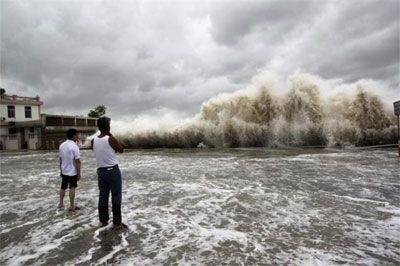US wants differentiation between developed and developing countries scrapped
 Days ahead of the launch of the Paris talks, the US has confidentially informed select countries of what it believes the important features of the Paris climate change agreement.
Days ahead of the launch of the Paris talks, the US has confidentially informed select countries of what it believes the important features of the Paris climate change agreement.
In a ‘non-paper’ shared with select countries, the US has said it wants the successive round of pledges under the proposed Paris agreement to be determined independently by each country and not through a process of international negotiation.
It has said that the wall of differentiation between developed and developing countries should be done away with consequently doing away with any notion of historical responsibility. Along with it, it wants developing countries to also contribute to the climate funds in future and not just the developed countries as is required for the UN Framework Convention on Climate Change, under which the Paris agreement is being stitched.
In the ‘non-paper’ the US has also informed select countries that it wants the long-term goal of the Paris agreement to be defined as the “collectively aiming to achieve climate neutrality over the course of this century” – a controversial term which countries such as Indian have opposed.
Business Standard reviewed the confidential non-paper shared by the US administration with select countries. Queries on the contents of the paper were sent to the office of the US special envoy on climate change Todd Stern and the country’s communication team for the Paris meet. Replies were not received by the time of going to publication. If received later they would be appended to the story online.
The document, in one part, reads, “What is expected from countries should be differentiated to capture their varying circumstances and capabilities today and in the future, not based on outdated categories (“Annex 1/non-Annex 1" or “developed/developing") created in 1992.”
At the moment the UN convention distributes the burden of emission reduction and other actions based on the principle of common but differentiated responsibilities, respective capabilities and national circumstances. Through this the historical responsibility of developed countries gets acknowledged in causing climate change through their accumulated emissions.
But the US, in its non-paper, has ignored these principles and wants the Paris agreement to focus only on existing economic capabilities of countries and their existing circumstances. India has strongly opposed this earlier.
Ajay Mathur, member of the Prime Minister’s council on climate change, in an interview to the Business Standard had said, “The differentiation was done for a very specific purpose. It was to make differentiation between those who are responsible for historic emissions and those who are not. That calculus and those numbers haven’t really changed. We don’t see why that concept should be swept under the carpet.”
The document also says the Paris agreement should be “centered on nationally determined mitigation contributions”. The phrase ‘nationally determined’ was emphasised in the document.
In the run up to Paris, there has been a tussle between countries whether an international mechanism should be in place to determine how much countries should ratchet up their pledges periodically or whether countries should be allowed to do so of their own will based on an assessment (referred to as a stock-taking) of how collectively all countries are close to keeping global temperature rise in check. India too believes the targets should be ‘nationally determined’ and not enforced through an internationally mandated mechanism.
On the issue of climate finance, the US, in the confidential document, says “all countries in a position to do so should be encouraged to support developing countries in need of support.” This militates against the existing principles and provisions of the UN convention, under which the Paris agreement is to be signed. The convention only requires the developed countries listed in Annex I of the convention to provide the finance for developing countries to take climate action and protect themselves against inevitable climate change.
At the moment the rich countries have committed to provide $100 billion annually by 2020 but the funds collected as public funds of these countries on a one-off basis in to the Green Climate Fund remain below $6 billion.
While all countries earlier agreed that the Paris agreement would be signed under the UN climate convention, India and others have warned against attempts to change the terms and conditions through the backdoor. India and several others have opposed the move to ask developing countries to also contribute to the climate funds.
On the long-term goal embedded in the draft Paris agreement, the US has said, “Paris Agreement should contain an ambitious but straightforward long-term goal to collectively aim to achieve climate neutrality over the course of this century.”
So far, the world has accepted the long-term goal of the Paris agreement should be to keep global temperature rise below 2 degree Celsius by the turn of the century. The term climate neutrality is not formally defined in the UN climate convention but is often read to mean that countries can continue to emit some levels of carbon emissions in their domestic economies as long as they can offset these by taking action in other geographies.
Large sections of civil society have criticised the idea for giving developed countries an easy way out to not take actions to reduce emissions from their own economic activity. India has repeatedly opposed the inclusion of new terms that are not defined clearly in to the Paris agreement at this late stage of the negotiations.






